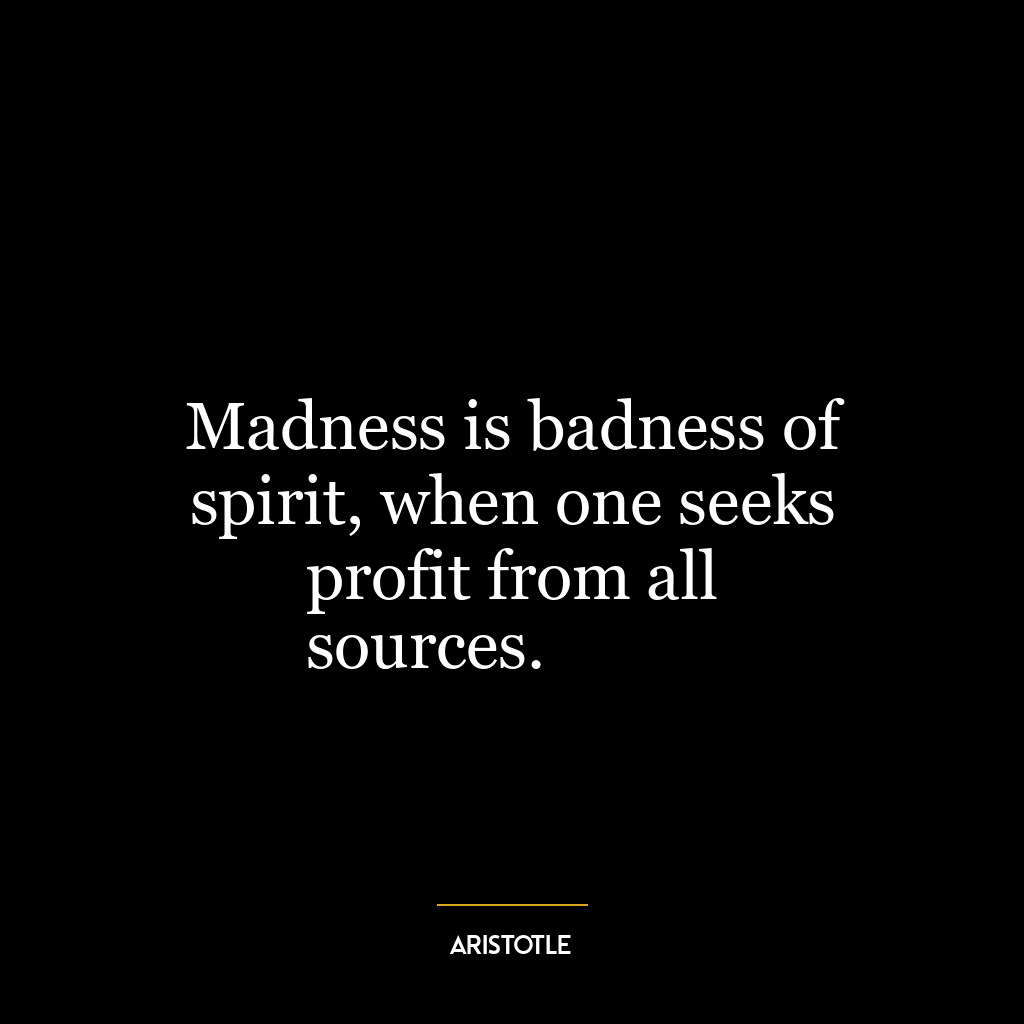This quote is a philosophical perspective on the concept of madness, defining it as a state of mind where one is driven by an insatiable hunger for profit or gain from every possible source. The phrase ‘badness of spirit’ refers to a moral or ethical failing, indicating that such a relentless pursuit of profit is not just unhealthy or unwise, but morally wrong.
The idea of seeking profit from all sources suggests an obsession with material wealth and gain, regardless of the means or consequences. It implies a lack of discernment or restraint, an inability to prioritize or value things appropriately, and a disregard for the harm or injustice that such greed might cause. This is what makes it ‘madness’ – it’s an irrational, destructive behavior that goes against the principles of balance, fairness, and respect for others.
In today’s world, this idea is highly relevant. We live in a society that often values material wealth and success above all else. This can lead to a ’profit at all costs’ mentality, where people are willing to exploit others, cheat, lie, or even harm themselves in their pursuit of wealth. This not only leads to personal unhappiness and societal inequality, but also to larger issues like corruption, environmental destruction, and economic instability.
In terms of personal development, this quote serves as a warning against letting our desires and ambitions control us. It encourages us to strive for balance, to value things like integrity, compassion, and contentment over material wealth. It reminds us that true success and happiness come from fulfilling our potential and contributing to society, not from hoarding wealth or exploiting others. It also suggests that we should be mindful of the impact of our actions on others and the world around us, and strive to make choices that are not only beneficial to us, but also fair and just.















